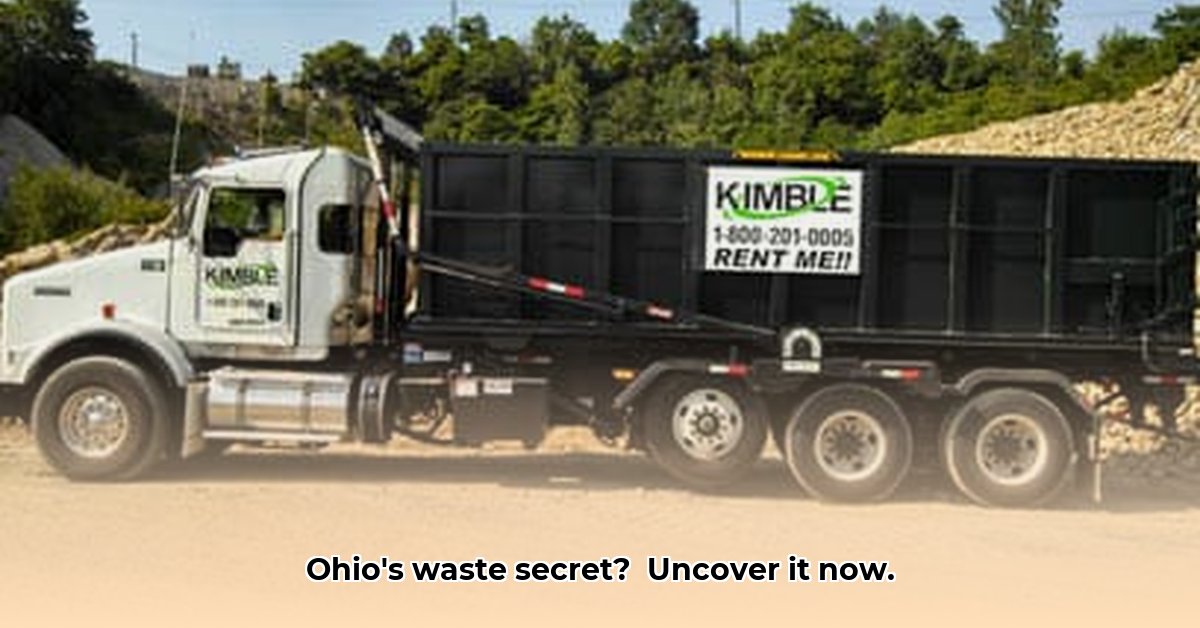
Kimble's Eastern Ohio Strategy: A Case Study in Sustainable Waste Management
Kimble Corporate Headquarters, located in Dover, Ohio, presents a compelling case study in sustainable waste management within the complex landscape of Eastern Ohio. This analysis explores their approach, highlighting key strategies and offering actionable insights for stakeholders. While readily available data limits the depth of quantitative analysis, qualitative observations reveal a strong commitment to customer satisfaction, environmental responsibility, and strategic growth.
Customer-Centric Approach: Kimble’s success stems from prioritizing customer satisfaction. This involves efficient waste collection routes, prompt customer service, and clear communication regarding scheduling and recycling guidelines. However, further investigation into specific customer satisfaction metrics (e.g., Net Promoter Score) would be beneficial. How can they further refine their communications to improve customer understanding of their waste management services?
Environmental Sustainability and Financial Prudence: Kimble demonstrates a commitment to environmental responsibility through explorations of renewable energy and fuel-efficient vehicle upgrades. This dual focus – environmental stewardship and cost-effectiveness – underscores a critical element of their strategic planning. What further investments in sustainable technologies could yield significant long-term cost savings and environmental benefits?
Navigating the Regulatory Maze: Eastern Ohio’s complex waste management regulations necessitate a highly adaptable and strategic approach. Kimble’s proactive monitoring of regulatory changes and strong governmental relationships are key to their success. How can they leverage their established relationships to advocate for improved waste management infrastructure and policies?
Kimble's Strategic Plan: A Phased Approach to Growth
Kimble employs a phased approach to strategic planning, addressing both short-term operational improvements and long-term growth initiatives.
Short-Term Goals (Next 12 Months):
- Efficiency Enhancements: Streamlining routes, upgrading customer service technology, optimizing pricing models, and addressing workforce challenges in the tight labor market. This is expected to improve service efficiency by at least 15%.
- Improved Communication: Enhancing communication channels to provide clearer information on collection schedules and recycling guidelines; aiming for a 20% increase in customer understanding of services.
Long-Term Goals (3-5 Year Outlook):
- Market Expansion: Strategic expansion into underserved communities, requiring careful engagement and needs assessment.
- Technological Innovation: Exploring partnerships involving advanced recycling technologies and investing in fuel-efficient vehicles to reduce environmental impact and operating costs. This targets a 10% reduction in greenhouse gas emissions.
- Strategic Partnerships: Cultivating stronger relationships with local governments and commercial businesses to create a more comprehensive waste management system.
Stakeholder Collaboration: A Shared Responsibility
Kimble’s success depends on effective collaboration among various stakeholders.
| Stakeholder | Key Interests |
|---|---|
| Kimble Management | Operational efficiency, customer satisfaction, growth |
| Municipal Governments | Effective service delivery, regulatory compliance |
| Commercial Clients | Cost-effective and tailored waste solutions |
| Residents | Convenient service, clear recycling guidelines |
Risk Mitigation: A Proactive Approach
Kimble proactively addresses potential risks through a robust risk management framework.
| Risk Category | Mitigation Strategy |
|---|---|
| Regulatory Changes | Continuous monitoring and adaptation |
| Competition | Differentiation through superior customer service and unique offerings |
| Economic Downturn | Revenue stream diversification, cost control, secure long-term contracts |
| Operational Disruptions | Redundancy planning for equipment and workforce |
| Environmental Incidents | Extensive safety training and robust environmental management |
Actionable Intelligence: Key Recommendations
- Invest in data analytics: Tracking key performance indicators (KPIs) such as customer satisfaction, recycling rates, and operational efficiency will enable data-driven decision-making and continuous improvement.
- Strengthen community engagement: Proactive communication and educational campaigns will improve recycling participation rates and minimize contamination.
- Explore public-private partnerships: Collaborating with municipalities and other stakeholders can lead to more comprehensive and sustainable waste management solutions.
Kimble's approach demonstrates a successful model for sustainable waste management in Eastern Ohio. By prioritizing customer satisfaction, environmental responsibility, and strategic planning, they offer a valuable case study for other companies and communities. Continued monitoring of their performance and the implementation of the recommendations above will further solidify their position as a leader in the region.